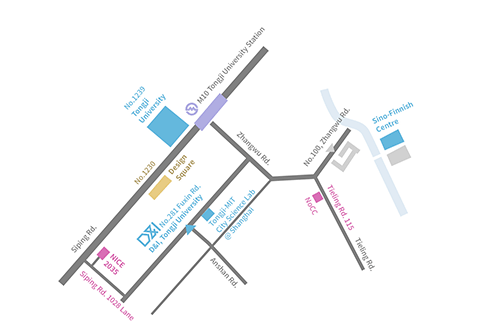The college offers design education from undergraduate to doctoral levels. D&I has adopted a 3D T-shaped educational framework that can integrate the cultivation of the vertical and the horizontal capabilities, so as to cultivate T-shaped innovation-oriented elites who perfectly connect their vertical and horizontal knowledge and capability. The vertical capability denotes deep, operational and disciplinary knowledge and skills in a specific professional domain; The horizontal capability is the ability to integrate and apply knowledge and skills to solve problems in different contexts.
D&I will combine the above-mentioned 3D T-shaped educational framework with the prevailing Undergraduate-Master-PhD higher education system (or equivalently, the Bologna Process in Europe) to explore possible approaches to cultivate design innovation talents.
D&I strives to shape its undergraduate, master and PhD programs in light of distinct goals, cultivating different kinds of talents who are suitable for design, research, education or management.
The following programmes are offered at the College of Design and Innovation, Tongji University:
Undergraduate Programs
Industrial Design (B.E.) / Product Design (B.A.)
Environmental Design (B.A.)
Media and Communication Design (B.A.)
Master’s Programs
Advanced Industrial Design (M.E.)
Advanced Media and Communication Design (M.E.)
Interaction Design (M.E.)
AI and Data Design (M.E.)
Innovation and Entrepreneurship (M.E.)
Product Service System Design (M.F.A.)
Advanced Environmental Design (M.F.A.)
Design Strategy and Management (M.A.)
Design History and Theory (M.A.)
Doctoral Program
This program focuses on the connection between rigorous and evidence-based design research and the emerging practices addressing burning issues arising from
complex sociotechnical systems. The students are encouraged to apply knowledge, proactively, to tackle the real-world problems. To this end, this program provides an interdisciplinary learning environment that fosters systematic studies on theories, research methodologies, processes, and methods and tools. Based on three value pillars—human-centered design, design for sustainability, and open design—the program aims to advance knowledge in, but not limited to, the following areas: urban-rural interaction, healthcare, transportation, education innovation, community building, smart living, and industrial transformation.




